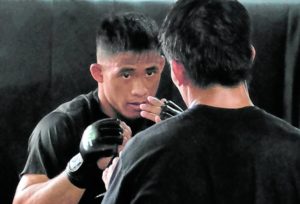PUERTO PRINCESA CITY— “I want to win. I’m ready and my body feels good.”
Thus declared Southeast Asian Games gold medalist Fernando Casares as he emerged as one of the favorites in Sunday’s Ironman Puerto Princes 70.3, the climax of the Ironman calendar and this city’s baptism into the world of triathlon.
Casares, a member of the country’s national triathlon team, is coming off a creditable
performance in last month’s World Triathlon Cup in Japan and is tipped to give Satar
Salem a run for the P150,000 winner’s prize offered by Mayor Lucilo Bayron.
Over 1,200 triathletes, including entries from 25 countries, are entered in the inaugural Ironman competition in Puerto Princesa, Palawan which Bayron hopes would become Bayron, who took over the city’s reins as mayor from long-time mayor and now Rep. Edward Hagedorn, said the city hopes to fashion itself as the country’s next sports tourism capital.
“The city is ready,” he said.
“If we can hold this Ironman race forever in the city, why not?” he told Friday’s press conference attended by Sunrise Events boss Princess Galura, Casares, SEA Games gold medalists Claire Adora and Casares, top Filipino age-grouper Mervin Santiago and Aless Castaneda, the fastest female Filipino finisher in the Ironman 70.3 World Championship in St. George, Utah.
“This inaugural race in Puerto Princesa is a fitting climax to the year,” Galura said.
The triathletes will swim 1.9 kms off the Puerto Princes Baywalk, bike for 90 kms to the south of the city and run 21 km around the city center, ending at the Ramon V. Mitra Jr. Sports Complex.
The swim course is relatively easy, “even for beginners” and the current is very manageable,according to veteran triathlete and coach Julian Valencia.
The three-loop bike course is rolling and a bit jarring in some parts, but it is relatively flat, said veteran coach Jojo “Jomac” Macalintal, who sampled the route on Friday along with members of his Team Trimac.
“It will be a fast race,” predicted Casares, who will be competing in his first 70.3 distance after racing mostly in the shorter standard (Olympic) distance. To transition to the longer distance, Casares said he had to adjust his nutrition and hydration and increase his mileage in cycling and running. INQ


